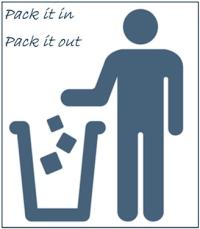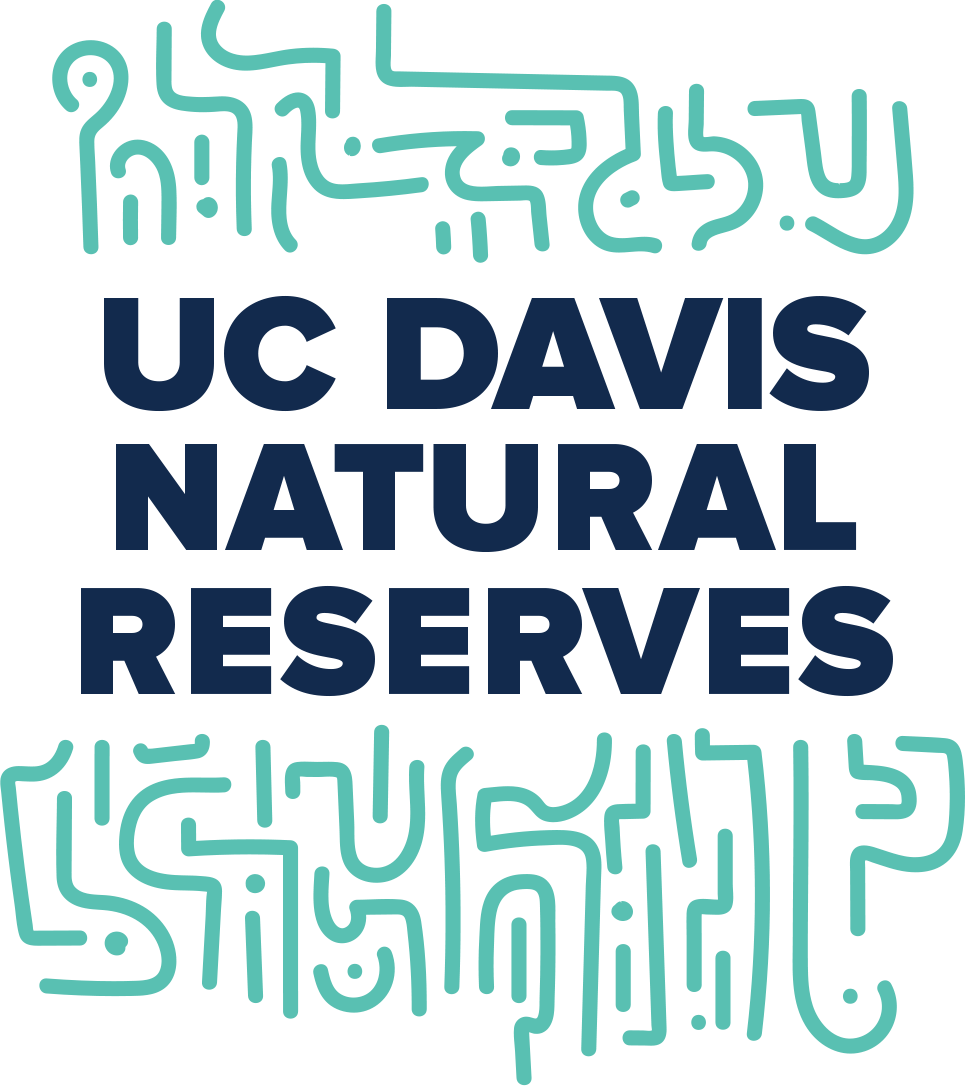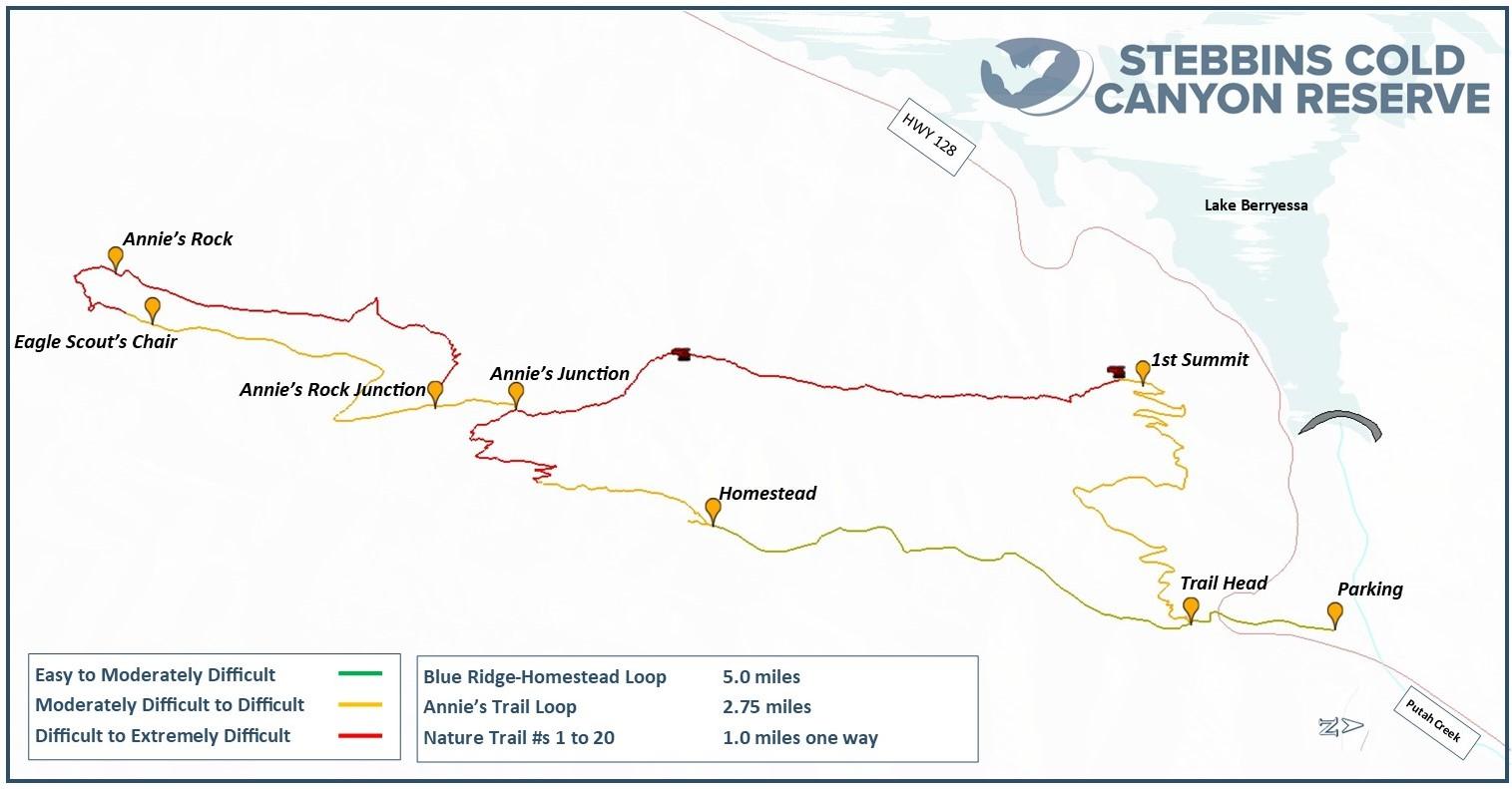Do not leave valuables in cars. Trash cans not provided.
Please pack out All trash.
TRAIL RULES

- Stay on trails.
- No dogs or mountain bikes on trails.
- Pack out everything you bring in – leave no waste.
- Do not disturb, collect or kill plants, animals and other living or non-living organisms.
- Do not disturb research sites or restoration areas (indicated by colored tape, flags, or signs).
- Do not carry out unauthorized trail work.
- Camping or campfires are not allowed.
- No firearms or target shooting. No hunting permitted from trails.
Dogs are not allowed in the reserve
Stebbins Cold Canyon Reserve is primarily dedicated to teaching and research; however, its trails are open to hikers year-round from sunrise to sunset. Although hiking with dogs is not allowed on the trails, we urge people with dogs to make use of the public land to the northwest of the reserve in the Putah Creek Wildlife Area. Hikers can access the Wildlife Area from the Putah Creek parking area on the east side of Highway 128.
STAY SAFE
Download the trail safety handout prepared in collaboration with the Vacaville Fire Protection District before heading out.
- Trails are rough, steep and strenuous. Some areas have cliffs and steep drop-offs; never allow children to run ahead unsupervised. Stay on marked trails. Wear proper footwear.
- Avoid heat exhaustion and stroke – drink plenty of water and protect yourself from the sun. Avoid hiking in hot weather. No water is available on site.
- Avoid hiking during periods of high fire danger. Fires move very quickly on scrub-covered slopes. Wildfires can happen at any time, but warm days from May-October are highest risk.
- Fire-damaged trees may be weakened; stay away from damaged trees and avoid the area on windy days.
- Do not attempt creek crossings during periods of high water.
- Rattlesnakes are common in rocky areas of the reserve. Watch your step, and look before sitting!
- Poison oak grows thickly along the trail; stay on the trail, and avoid brushing up against leaves and bare branches.
- Ticks are potential disease carriers. Stay on the trail, wear long pants and inspect and wash yourself after your hike.
- Mountain lions are active in the area. Hike with a partner, and keep children in sight.
- Avoid contact with rodents or their nests or droppings, as they may be carriers of Hantavirus.
- Cell phone service is not consistently available in the area, although it is often better near ridgetops. It is always advisable to carry first aid equipment and extra water.
Please help ensure everyone’s security by notifying the reserve manager of any inappropriate uses of the reserve that you observe.


